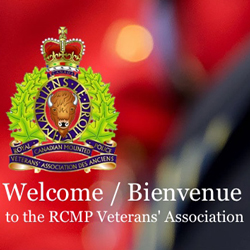Snowbirds Stuck in the US May Have to File Tax Returns
RCMP Veterans’ Association
Members Helping Members
This information is being provided to all Association Members
The American IRS May Require Canadians to File Tax Returns
Dear Association Members,
Association Advocate Chris Lavin from Toronto has provided the following article from Moody’s Investors Service related to the potential requirement of Canadian Snowbirds who are unable to return to Canada to file tax returns with the U.S. Internal Revenue Service (IRS).
Thank you to Chris for alerting us to this situation. Members may wish to share the article with others who may be affected by this potential action by the U.S. Government.
The article follows,
James Forrest
Director of Communications
RCMP Veterans’ Association

IRS May Require Snowbirds Stuck in the US to File Tax Returns
Published on 7 April, 2020 by Gabriel Castillo JD, LLM and Kevin Kirkpatrick JD, MBA
In a previous blog, we discussed the immigration impacts of recent border closures and travel restrictions due to the COVID-19 pandemic for snowbirds and those on B-1 (business visitors) and B- 2 (visitors for pleasure) non-immigrant status. Ensuring compliance with your immigration status is your obligation to the US government, however, there can potentially be an additional obligation: tax filing.
Despite holding a non-immigrant visa status such as B-1/2, an individual can still be considered a resident alien for US tax purposes. Typically, entry to the United States as a visitor gives Canadian citizens up to a 6-month stay, but residency for income tax purposes is always calculated on a calendar year basis, as discussed further below. Resident aliens, regardless of immigration status, are treated in the same manner from an income tax perspective as if they were a US citizen or Legal Permanent Resident (a.k.a., “green card” holder). This means that such an individual will need to file a US income tax return with the IRS and report all income whether earned within or outside the United States. The likelihood of being a resident alien for tax purposes is increasing as people are looking to extend their non-immigration status to stay in the United States for a longer period given these di cult times.
In order to determine if such individual is a resident alien, he or she must consider the “substantial presence test.” The substantial presence test is satisfied if a calculated formula results in 183 days or more over a three-year period. In this formula, days of presence in the second preceding year count for one-sixth; days in the preceding year count for one-third; and days in the current year count fully. As an example, let’s say you are a Canadian citizen and resident for income tax purposes who travels to the United States every year for 130 days. Over the course of three years, your US presence for tax purposes would be 195 days (the sum of = 130 + (130 x 1/3) + (130 x 1/6 which is obviously greater than 183) resulting in you being a US tax resident alien despite only entering the US on a B-1 or B-2 status. If this test is met, an individual is effectively treated as if he or she is a US citizen or green card holder, forcing such individuals to report on worldwide income. If this example is modified to only spending 120 days every year, the same Canadian citizen would not be treated as a tax resident and would only be subject to US tax on US sourced income, if any (120 + (120 x 1/3) + (120 x 1/6) = 180 which is less than 183 days).
During these uncertain times, it’s especially important to note that the number of days present in the US can be excluded for purposes of this calculation. Specifically, an individual will not be considered present on any day that he or she intends to leave the United States but is unable to do so given a medical condition or problem that arose while present there. For example, if an individual is diagnosed with COVID-19 while in the United and needs medical treatment, these days will not be counted for purposes of the substantial presence test. But simply being unable to leave the United States because travel restrictions have been imposed and flights have been cancelled, or because one’s spouse has contracted the coronavirus, would not be eligible to exclude from the tax-day count.
The good news is that, if after calculating your presence in the United States you find yourself to be a resident alien, you still may be able to “override” the substantial presence test in two different ways:
- Closer Connection Exception: To qualify for this exception, you can meet the criteria of the substantial presence test by virtue of the formula, however, you cannot have spent more than 182 in the US in a single calendar year. This option can be leveraged if you maintain a tax home in a foreign country and overall have “closer connections” with that foreign country (like Canada) by filing IRS Form 8840, with or without a Form 1040-NR;
- Treaty Tiebreaker: The second option is available if the closer connection exception is not available. This exception lies in the Canada-US Treaty (Article IV), and it allows Canadian residents to continue to be only Canadian tax residents if they meet certain criteria under the Treaty and even if they spend more than 182 days in the United States in a single calendar year. To invoke the protection of the Tax Treaty, the Snowbird must file with the IRS Form 1040NR, and attach to it Form 8833, the form for disclosing a treaty-based return position. This protection still requires US information returns (FBARs, etc.) as the treaty only exempts from US taxation – not necessarily reporting.
Residency definitions are different for US federal income tax and US federal estate tax and are also different for federal taxes and state taxes. As extended stays continue, the likelihood of being considered a US resident alien increase. Extended absences from Canada can also have Canadian tax consequences and result in loss of provincial health care, on top of potential US noncompliance that may lead to interest on US taxes owed and other penalties associated with it.
Our message is similar to what many public health authorities are urging during this pandemic: don’t panic but do plan.


 April 11, 2020
April 11, 2020 








